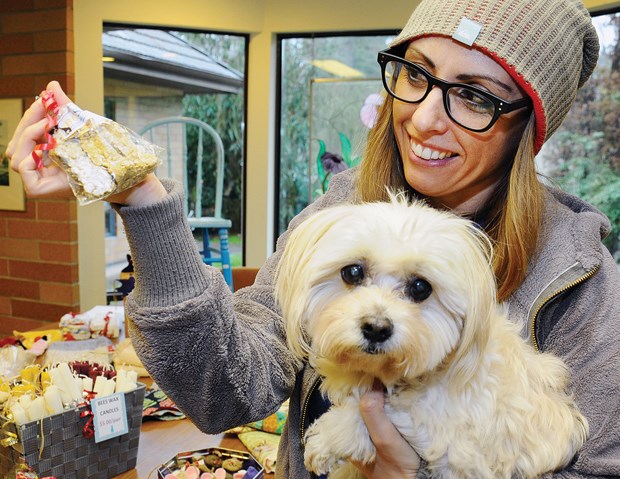Christmas A cuddly kitten or puppy seemingly makes for a perfect Christmas present, but parents and gift-givers in the should always be sure the recipient is prepared for the neighbourhood responsibility of owning a pet, says the SPCA.
"We always say the holidays can be a wonderful time to bring in a new pet," says Dragana Hajdukovic, BC SPCA West Vancouver branch manager. "It's a lifelong responsibility and every (pet) guardian needs to make that decision for themselves."
So instead of surprising a family member or friend with a pet as a present, Hajdukovic recommends that everyone involved do their research. Be sure the person is ready to take on all that owning a pet involves including feeding, cleaning, walking, and just being home to spend time with them. There can also be a significant cost in owning a pet, including food and supplies (such as cat litter), and some may also need boarding or walking services.
While the SPCA is an obvious place to adopt from, says Hajdukovic, there are private pet rescues and societies that would-be pet owners can also explore.
"Always ask questions and make sure you are comfortable with whomever you are dealing with," advises Hajdukovic.
Parents can still surprise their kids with a new pet by bringing the kids down to the shelter under the guise of making a donation or visiting with the animals.
"We have tricked kids before," says Hajdukovic.
As for whether the shelter sees an influx of unwanted animals after Christmas, Hajdukovic says they don't tend to see more people surrender their animals if they are being given as gifts The holidays can be overwhelming for pets, let alone their owners, so it's important to pay attention to your pet's behaviour when there's a large crowd gathered in the house.
Perhaps put your pet in a different room with a toy, a bone or some food, advises Hajdukovic, adding "never force the pet to interact with people." It's pretty standard when it comes to pet safety at Christmas, according to the SPCA. "We always caution against wrapping up chocolates and edible items and putting them under the tree," says Hajdukovic.
"Chocolate can be toxic to dogs. Also some plants like poinsettias can be dangerous."
If you think your pet has ingested something it shouldn't have, contact a veterinarian right away. If travel is part of your holiday plans, consider letting your pets relax and make friends at the West Vancouver SPCA, which offers boarding for dogs. Spots fill up quickly, so dog owners should book well in advance. Christmas is a time for charitable giving and the SPCA gratefully accepts monetary and in-kind donations to help them sustain their operations.
"We depend on donations, so we will happily accept donations in kind, things like specific cat food, leashes, toys," says Hajdukovic. "We suggest people check in with us because we do have a wish list."
One festive way to support the West Vancouver SPCA is to stop by the branch at 1020 Marine Dr., and dedicate an ornament (by donation) to your pet. The transparent ornaments, which can contain a photo of your Fido or Fluffy, are then hung on the shelter's Christmas tree.
BC SPCA holiday safety tips for pets:
No bones: Avoid giving bones to your dogs or cats, particularly turkey bones. Poultry bones easily splinter and can cause serious injury, while bone fragments can cause intestinal blockages or lacerations.
Healthy treats: Chocolate and other sweets should not be given to animals. Chocolate contains theobromine, a chemical that can be deadly to cats and dogs, though not harmful to humans. The best thing you can do for your pets over the holidays is to keep them on their regular diet.
Poisonous plants: Many popular holiday plants are poisonous to animals including mistletoe, holly, ornamental pepper and Christmas rose. Remember to keep these plants out of reach of pets, especially birds. Some pets that have a sensitivity to the latex contained in poinsettias may get diarrhea or even vomit if they consume a poinsettia.
Avoid tinsel: Make sure your Christmas tree is well secured. Try to place decorations above paw height and use string to hang the bulbs instead of hooks, which are easily dislodged. If possible, use nonbreakable ornaments. Avoid using tinsel or angel hair. Cats and dogs will ingest both, which can cause intestinal problems. Cords for lights should be made inaccessible to pets. Some chemicals added to the water reservoir of a Christmas tree can be toxic to animals, so keep the reservoir covered.
Watch toys: Avoid purchasing pet toys with small or soft pieces that can be chewed and swallowed. Nylon bones tend to splinter less than plastic ones. Be sure to inspect pet toys regularly and discard deteriorating ones.



